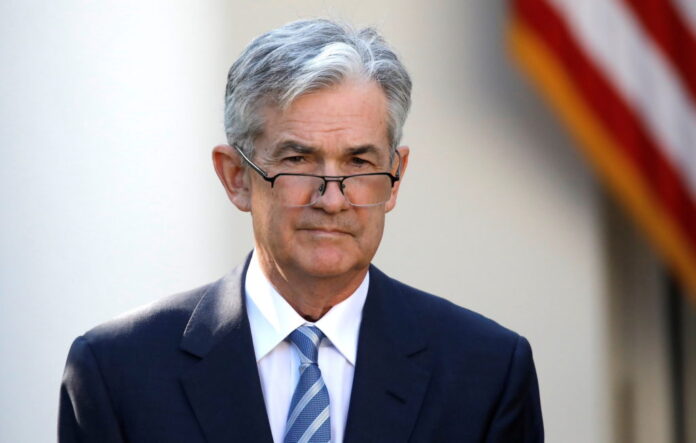WASHINGTON: Jay Powell has warned the Federal Reserve is prepared to switch back to bigger interest rate rises if the US economy continues to grow too quickly, in remarks prepared for a high-stakes congressional appearance on Tuesday.
Powell’s testimony marks the Fed chair’s first public intervention since data releases showed the central bank is still struggling to cool the US economy despite a year-long campaign of monetary tightening.
Describing recent economic data as “stronger than expected”, Powell told the Senate Banking Committee that “the ultimate level of interest rates is likely to be higher than previously anticipated”. “If the totality of the data were to indicate that faster tightening is warranted, we would be prepared to increase the pace of rate hikes,” he added.
The dollar extended gains and US Treasury yields climbed after Powell’s remarks. Traders increased their bets on a half-point rate rise at the Fed’s next meeting later this month, with the odds now roughly evenly split between that and a quarter-point increase, according to the CME Group.
Powell’s remarks come after the US central bank spent months reducing the size of rate rises from a peak of 0.75 percentage points, which was sustained from June to November. In December, it scaled back to a half-point rate rise and then shifted down again in February to the more traditional quarter-point increase.
The Fed’s main interest rate is at a target range between 4.5 per cent and 4.75 per cent, compared with near zero at this time last year. In December, Fed officials projected interest rates would reach a peak of 5.1 per cent this year. But the Fed chair’s comments are the latest indication that he is open to ratcheting up the pace of rate increases in the face of unexpectedly persistent price pressures and is willing to squeeze the economy even further to ensure inflation subsides.
Two critical data releases due before the next meeting will help to inform the Fed’s decision: the next monthly jobs report on Friday and the consumer price index report for February, which will be published next week. Investors and economists will be watching to see whether the rebound in the labour market and consumer demand in January was sustained last month. Powell said the hot data “likely reflects the unseasonably warm weather” but also indicates “inflationary pressures are running higher than expected”.
Please use the sharing tools found via the share button at the top or side of articles. Copying articles to share with others is a breach of FT.com T&Cs and Copyright Policy. Email [email protected] to buy additional rights. Subscribers may share up to 10 or 20 articles per month using the gift article service. More information can be found here.
Politically, Powell has faced renewed pressure from Republicans to be aggressive and to not fall behind the curve in tackling inflation. Democrats have been growing increasingly anxious that the Fed will go too far in tightening monetary policy, triggering a recession that could undermine many of the labour market gains achieved during the recovery from the coronavirus pandemic. Sherrod Brown, chair of the Senate Banking Committee, urged Powell against squeezing the economy excessively with higher borrowing costs, which he warned would jeopardise historic gains among workers in the labour market.
“We cannot risk undermining one of the successes of our current economy,” he said.
On Tuesday, Powell said that to get inflation back down to the Fed’s 2 per cent target, there would “very likely” need to be “some softening in labour market conditions”, suggesting job losses ahead.
The US currency was 0.6 per cent higher on the day against the euro after his comments were released. This compared with a 0.4 per cent gain previously. The yield on interest-rate sensitive two-year Treasuries climbed 0.07 percentage points to 4.964 per cent.
Powell also faced questions on banking regulation, with Democrats pressing the Fed to tighten capital standards for the largest institutions, and Republicans pleading for a looser treatment. Michael Barr, the Fed’s vice-chair for supervision, is leading a review of capital rules.

























The next monthly jobs report, which will be issued on Friday, as well as the consumer price index report for February, which will be published the following week, will both assist to influence the decision that the Federal Reserve will make before their next scheduled meeting.